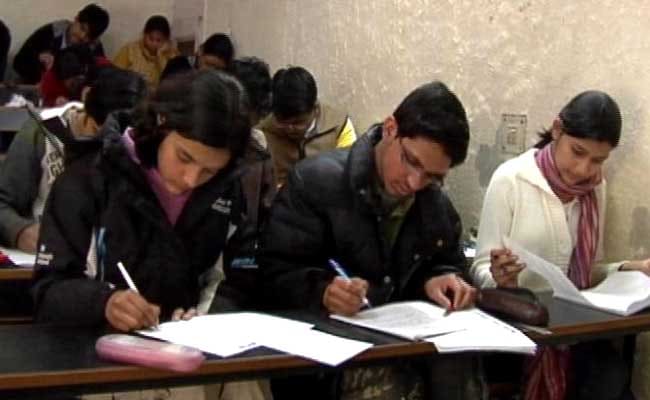
Merit cannot be reduced to narrow definitions of performance in an open competitive examination which only provides formal equality of opportunity, the Supreme Court said yesterday as it upheld 27 per cent Other Backward Classes (OBC) reservation in All India Quota (AIQ) seats in the NEET for UG and PG medical courses.
Justifying allowing quota for Economically Weaker Sections (EWS) on existing quota for the current academic year, the bench said, "We are still in the midst of the pandemic and any delay in the recruitment of doctors would impact the ability to manage the pandemic. Hence, it is necessary to avoid any further delays in the admission process and allow counselling to begin immediately."
The court said that Articles 16 (4), 15 (4), and 15 (5) of the constitution employ group identification as a method through which substantive equality can be achieved and does not change the underlying rationale of the reservation policy that seeks to remedy the structural barriers that disadvantaged groups face in advancing in society.
"Reservation is one of the measures that is employed to overcome these barriers. The individual difference may be a result of privilege, fortune, or circumstances but it cannot be used to negate the role of reservation in remedying the structural disadvantage that certain groups suffer," it added.
A bench of Justices D Y Chandrachud and A S Bopanna passed an order detailing reasons for upholding the 27 per cent OBC reservation and allowing a 10 per cent EWS quota on existing criteria for NEET-UG and PG this academic year.
"In view of the discussion above we hold that the reservation for OBC candidates in the AIQ seats for UG and PG medical and dental courses is constitutionally valid..," the bench said.
It said that the information bulletin of the NEET-2021 exams specifies that the reservation applicable to NEET-PG would be notified by the counselling authority before the beginning of the counselling process.
"Therefore, the candidates while applying for NEET-PG are not provided any information on the distribution of seat matrix. Such information is provided by the counselling authority only before the counselling session is to begins. It thus cannot be argued that the rules of the game were set when the registration for the examination closed." the bench said.
It held, "The challenge to the constitutional validity of OBC reservation in AIQ seats introduced through the notice dated July 29, 2021, is rejected in view of the discussion."
Dealing with the issue of the validity of OBC quota, the bench said, "Merit cannot be reduced to narrow definitions of performance in an open competitive examination which only provides formal equality of opportunity. Competitive examinations assess basic current competency to allocate educational resources but are not reflective of excellence, capabilities, and potential of an individual which are also shaped by lived experiences, subsequent training, and individual character."
The bench said that the centre was not required to seek the permission of this court before providing reservation in AIQ seats and therefore, providing reservation in the AIQ seats is a policy decision, which will be subject to the contours of judicial review similar to every reservation policy.
The court said that crucially, open competitive examinations do not reflect the social, economic, and cultural advantage that accrues to certain classes and contributes to their success in such examinations.
"High scores in an examination are not a proxy for merit. Merit should be socially contextualized and re-conceptualized as an instrument that advances social goods like equality that we as a society value. In such a context, reservation is not at odds with merit but furthers its distributive consequences," the bench said.
It said that the binary of merit and reservation has now become superfluous once this Court has recognized the principle of substantive equality as the mandate of Article 14 and as a facet of Articles 15 (1) and 16(1) of the Constitution.
Justice Chandrachud, who penned down a 106-page verdict, said that the exclusionary standard of merit serves to denigrate the dignity of those who face barriers in their advancement which are not of their own making.
On the EWS quota, the court said that it is a settled principle of law that in matters involving a challenge to the constitutionality of legislation or a rule, the court must be wary to pass an interim order unless the court is convinced that the rules are prima facie arbitrary", it added.
The bench said, "as a result, we allow the implementation of EWS reservation in AIQ seats in NEET UG and PG seats for the academic year of 2021-2022. The EWS category shall be identified in view of the criteria in Office Memorandum of 2019".
On January 7, the top court had paved the way for starting the stalled NEET-PG 2021 counselling process based on the existing 27 per cent OBC and 10 per cent EWS reservations in the All India Quota seats, saying there is an "urgent need" to begin the admission process.
The centre had constituted a three-member committee, comprising Ajay Bhushan Pandey, former finance secretary, VK Malhotra, member secretary, ICSSR, and Sanjeev Sanyal, Principal Economic Adviser to Centre to revisit the criteria for determining EWS.
It had decided to accept the recommendations of the panel to retain the current gross annual family income limit for defining EWS at Rs 8 lakh or less.
(This story has not been edited by NDTV staff and is auto-generated from a syndicated feed.)
Track Latest News Live on NDTV.com and get news updates from India and around the world

